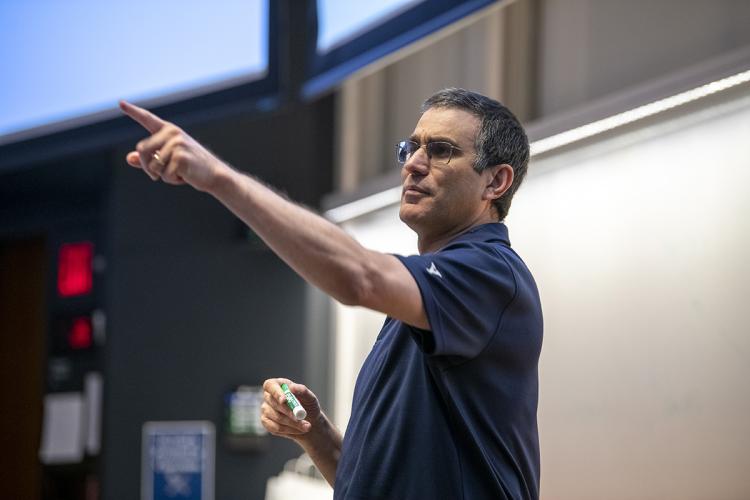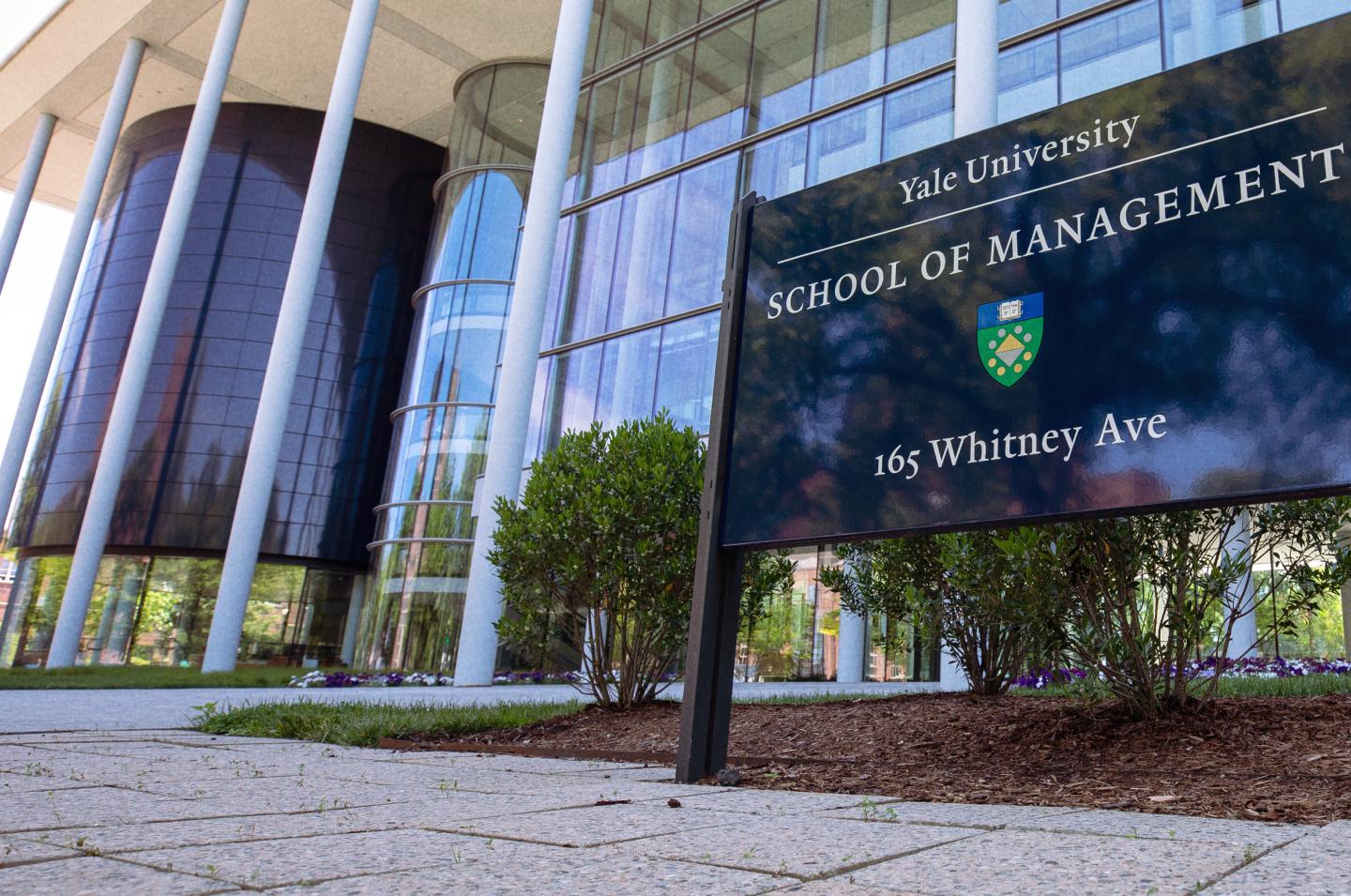Andrew Metrick ’89, ’89 MA is the Janet L. Yellen Professor of Finance and Management at the Yale School of Management (SOM) and director of the Yale Program on Financial Stability. His research focus is the regulation of systemic risk, the activities of complex financial institutions, and the causes and consequences of the financial crisis of 2007–2009. Metrick also served in the Obama Administration as the chief economist at the Council of Economic Advisers.

How did your time as a Yale College student shape your future career?
A truly pivotal experience from my time at Yale as an undergraduate was working as a research assistant for James Tobin ’84. At first, I didn’t think I’d get to work with him, because he was on leave the year that I took intermediate macroeconomics. But after the semester was over, I got a note in my Yale mailbox saying that he’d seen that I did well in the class and was wondering if I’d be interested in working for him. I was thrilled and went on to work for him for two and a half years. I didn’t know what an economist was when I got to college, but I learned quickly that when I grew up, I wanted to be like him.
You eventually returned to Yale as a professor studying investing, but your academic interests shifted. What caused that change?
I first came to Yale to teach about venture capital and investment, but in 2007, Bear Stearns was beginning to collapse. My father had been a Bear Stearns executive, and he’d been pulled out of retirement to come back and help. Hearing about the bubbling crisis from him was, I think, akin to being an infectious disease doctor and having someone in your family come down with a bunch of very strange symptoms. I felt like, as an economist, I needed to be able to figure out what was happening. How does a large institution with $20 billion in liquidity on Monday become ready to file for bankruptcy on Friday? Soon, I was working full-time trying to understand the financial crisis.
How did working on financial regulation change how you approach your academic research?
My time in Washington made me realize just how big the gaps were in our research about treating and preventing financial crises. It became clear to me that the most useful thing I could do was try to fill those gaps. When it comes to the technical aspects of legislation, members of Congress often don’t have strong opinions about things like the lifespans of bridge banks or the legal definitions of derivatives.
If there had been good research on these topics that I could have put in front of people, they would’ve been delighted to just write legislation based on it, but it didn’t exist. When it comes to what to do in a crisis and how rules should be set up in advance, there were gaps so wide you could drive a truck through them. The legislation that resulted came out of a lot of guesswork and influence from people in industry because no one had any reason to do it differently. When I returned to Yale after my year in Washington, I knew I wanted to help fill those research gaps.
How has being at Yale allowed you to realize those research goals?
I’ll give you an example. Rick Levin, the former president of Yale, had recently retired from Yale and joined Coursera as their CEO. He got a call from Tim Geithner, who had recently left his job as the secretary of the treasury. Tim asked Rick if Coursera might be interested in a course from him about the global financial crisis. Rick put Tim in touch with me, and together we created a course that has been taken by hundreds of Yalies and tens of thousands of learners online.
Tim’s involvement has really raised the profile of the Program on Financial Stability and helped us scale up the intellectual side of what we do. It has allowed us to initiate the New Bagehot Project, named after Walter Bagehot, whose book Lombard Street (1873) is still considered the seminal text on responding to financial crises. We have twenty full-time staffers working to update it and create a twenty-first-century playbook for financial intervention, so policymakers will have concrete data to turn to in a crisis.
So, the fact that the former president of Yale was such a prominent person that the treasury secretary called him, and he connected him with me? That’s what led to this great project, and I wouldn’t have gotten that call at any other place.
